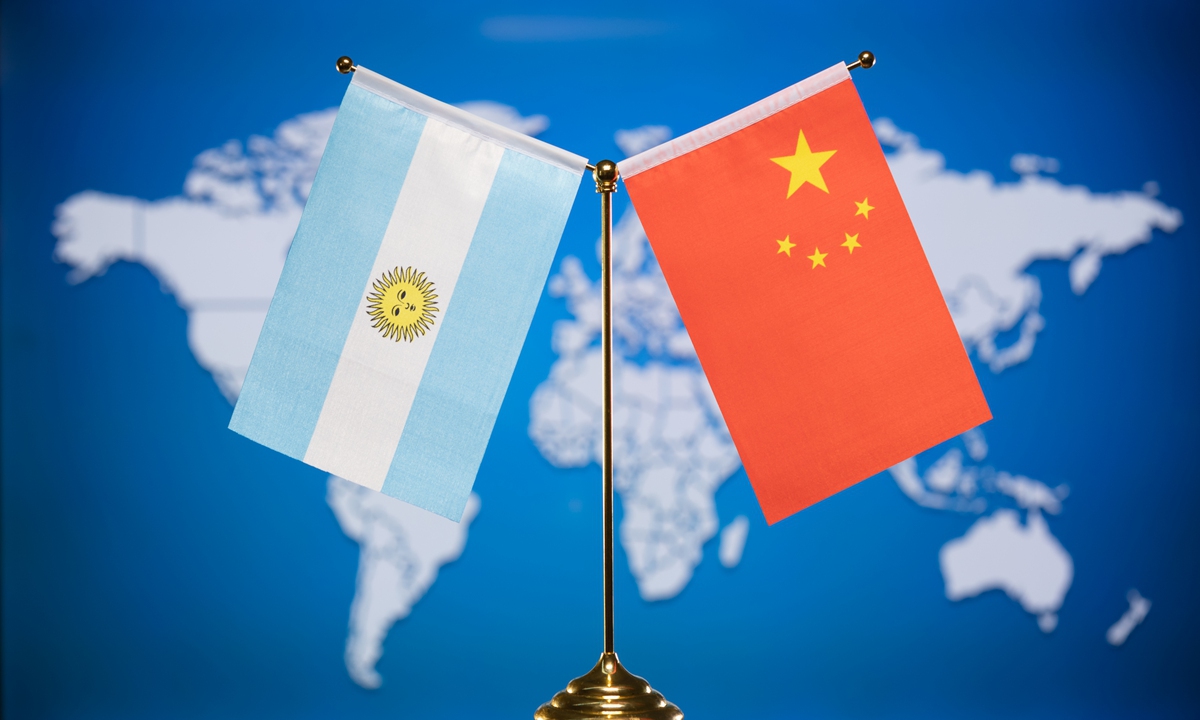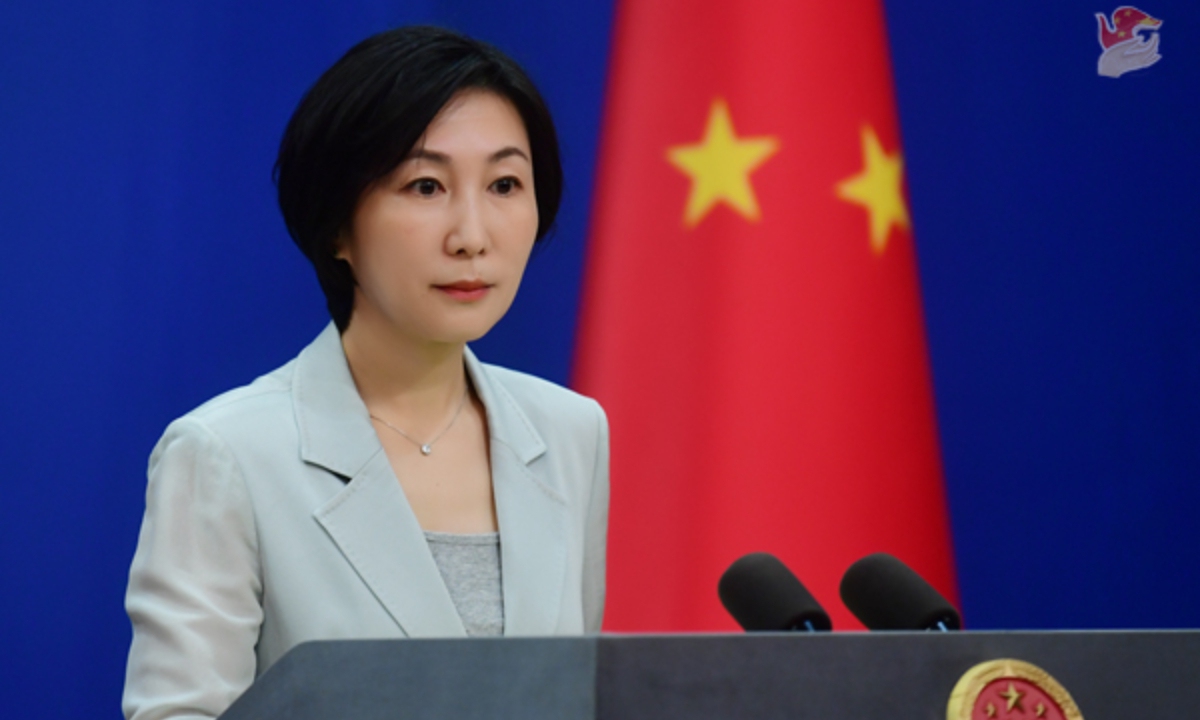No need to rush to pessimism about China-Argentina ties as economic cooperation continues to grow

National flags of China and Argentina Photo: VCG
Since Javier Milei, from the far-right Liberty Advances coalition, won Argentina's presidential runoff on Sunday, his unconventional economic and social policy proposals, as well as his reported unfavorable remarks toward China, have garnered significant attention. There have been numerous criticisms of his economic and social policies and concerns about potential setbacks in China-Argentina relations.
For starters, we need to understand the foundation of Milei's surprising success in election largely lies in Argentina's economy being deeply mired in the most severe crisis in nearly 20 years, which includes a currency crisis, financial crisis, and crisis in the real sector.
It is widely expected that Argentina's GDP will contract by over 2 percent in 2023, coupled with an inflation rate of around 120 percent, a significant devaluation of the exchange rate against the US dollar, and a debt crisis, among other challenges. It is not difficult to understand why a large number of voters have lost confidence in traditional political parties and politicians and turned to this non-traditional politician and his unconventional policy proposals.
Taking Milei's proposal of tax cuts and reduction of welfare expenditures as an example, Milei, who advocates for these measures, has gained widespread support among low-income voters. Many low-income workers may not understand complex economic theories, but they can intuitively feel that Milei's policy proposals can allow them to directly benefit from their hard work, rather than having their income heavily taxed. They can also see that his policies can enable them to leverage their comparative advantage in physical labor.
Moreover, Javier Milei proposed plans to give up the Argentine currency peso and use the US dollar, according to CNBC. There is no doubt that this policy proposal is unacceptable and unworkable. However, China, as an economic power with a stable currency does not represent the economic and currency situation of economies struggling with currency problems.
For a country, establishing a stable and reliable domestic currency and maintaining monetary sovereignty is undoubtedly an ideal state. However, the currencies of many countries have experienced a significant depreciation against the dollar, severely impacting their economies. In such cases, using a foreign currency becomes a feasible "second-best choice" for these countries and regions.
These countries and regions currently have a favorable view of the US dollar, but as China's comprehensive national strength rises and the internationalization of the yuan progresses, "yuanization" will become a "second-best choice" for more and more countries and regions.
China and Argentina first signed a currency swap agreement in 2009 for 70 billion yuan ($10.3 billion) and expanded it to 130 billion yuan in 2018. There have been reports that Argentina is seeking to further expand the quota. If Milei wants to move from the peso after taking office, it would need support from the existing currency swap agreement with China.
As for the future prospects of China-Argentina relations after Milei takes office, there is a high degree of complementarity in terms of resource endowment and industrial structure. China is Argentina's second-largest trading partner and the largest market for agricultural product exports. "Made in China" provides Argentine consumers with a wide range of affordable manufactured goods choices, which is beneficial to the basic livelihood of Argentina and helps to curb the current severe inflationary situation.
All these objective economic fundamentals determine the enormous potential for economic and trade cooperation between the two sides, not to mention Argentina's urgent need for China's cooperation and support in dealing with its current external debt and international liquidity crisis.
Looking back at the fact that China has maintained good relations with both left-wing and right-wing governments in Argentina over the past 20 years, there is no need to be overly pessimistic about the future of China-Argentina relations.
During a regular press conference on Tuesday, a reporter asked the Chinese Foreign Ministry spokesperson about recent remarks made by Diana Mondino, senior advisor to Milei, stating that "cooperation with the Chinese government will be stopped." However, it is important to approach these matters calmly and objectively.
In response, Foreign Ministry spokesperson Mao Ning noted that the reporter's description of Mondino statement is somewhat different from the interview published on the RIA Novosti website. According to the interview, some in the world misread President-elect Milei's foreign policy; no countries could step out of diplomatic relations and still be able to engage in economic and trade cooperation; and it would be a huge foreign policy mistake for Argentina to cut ties with major countries like China or Brazil. According to Mondino, the newly elected Argentine government values its relations with China, especially the business ties between the two countries.
In fact, Milei has shown a pragmatic trend in its stance toward China-Argentina relations. Therefore, there is no need to hastily adopt an overly pessimistic view regarding the stance of Argentina's new president on China and the future prospects of the bilateral relationship.
The author is a research fellow with the Chinese Academy of International Trade and Economic Cooperation under the Ministry of Commerce. bizopinion@globaltimes.com.cn


